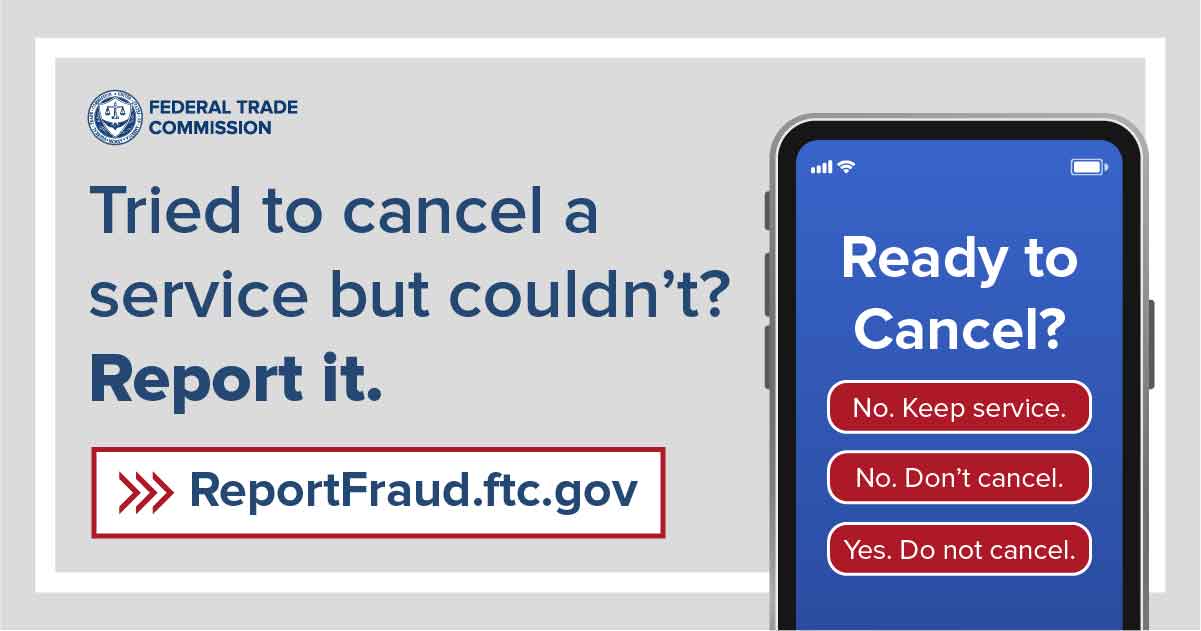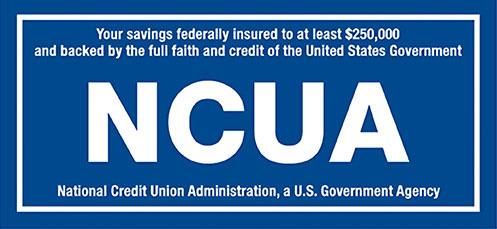April 22, 2024
Very Important ALERT!
Tips to ensure the security of your account:
- Never share your username or password with anyone. Passwords are secure and no one at MCECU will ask you for this information.
- Be selective when giving your debit and credit card information out, and never share your PIN number.
- Practice restraint. If something seems too good to be true, it likely is.
- If anyone offers to send you money and asks for money back or asks you to send the money to someone else, it is fraud. The transaction will be returned and will leave you on the hook for the amount.
- Monitor your accounts often and take advantage of our online/mobile alerts. Report any suspicious or unauthorized activity immediately to our Member Service Center at 901-321-1200.
FTC Consumer Alert
Celebrate National Consumer Protection Week. Talk about scams
By Samuel Levine, Director, Bureau of Consumer Protection
That call or text might not seem like a scam. It might look like it’s Apple or Microsoft, saying there’s a problem with your computer. (It’s not.) It might seem like it’s Amazon, saying there’s a problem with an order. (Also no.) It might even sound like your grandchild, calling with (supposedly) an emergency. (Still no.) All of these are scammers. This is National Consumer Protection Week (NCPW) and we’re inviting you to join us in talking about scams just like these.
Read more >
In the Check-Out line buying gift cards? Read on to avoid a scam
By Cristina Miranda
If you’re in the checkout line with a gift card (or several) in your hand, ask yourself: is the gift card you’re buying for a gift? Or is someone on the phone with you as you’re checking out telling you what to do – like buy a gift card to pay for something and give them the numbers? Gift cards are ONLY for gifts. That means if the gift card isn’t for someone’s birthday, anniversary, or for any other gift giving reason, it’s a scam.
FTC Consumer Alert
No, that’s not the IRS texting about a tax refund or rebate. It’s a scam.
By Gema de Las Heras
IRS impersonators have been around for a while. But as more people get to know their tricks, they’re switching it up. So instead of contacting you about a tax debt and making threats to get you to pay up, scammers may send you a text about a “tax rebate” or some other tax refund or benefit. Here’s what to know about the new twist.

Tried to Cancel a Service But Couldn’t? Learn steps to take.
Have you ever been unhappy with a service — like your phone or Internet — and tried to cancel it? But, when you tried, you found it difficult or nearly impossible? Learn about the ways companies illegally trick or trap people who use their services, steps to take, and your rights.
Read more >CONSUMER ALERT
FEDERAL TRADE COMMISSION
If you’re shopping for a used car and feeling rushed to buy a car before you can fully check it out — stop! Some used cars may have flood damage.
After a hurricane or flood, storm-damaged cars are sometimes cleaned up and taken out of state for sale. You may not know a car is damaged until you look at it closely. Here are some steps to take when you shop:
Check for signs and smells of flood damage. Is there mud or sand under the seats or dashboard? Is there rust around the doors? Is the carpet loose, stained, or mismatched? Do you smell mold or decay — or an odor of strong cleaning products — in the car or trunk?
Check for a history of flood damage. The National Insurance Crime Bureau’s (NCIB) free database will show if a car was flood-damaged, stolen but not recovered, or otherwise declared as salvaged — but only if the car was insured when it was damaged.
Get a vehicle history report. Start at vehiclehistory.gov to get free information about a vehicle’s title, most recent odometer reading, and condition. For a fee, you can get other reports with additional information, like accident and repair history. The FTC doesn’t endorse any specific services. Learn more at ftc.gov/usedcars.
Get help from an independent mechanic. A mechanic can inspect the car for water damage that can slowly destroy mechanical and electrical systems and cause rust and corrosion.
Report fraud. If you suspect a dealer is knowingly selling a storm-damaged car or a salvaged vehicle as a good-condition used car, contact the NICB. Also tell the FTC at ReportFraud.ftc.gov and your state attorney general.
Avoiding SSA scams
Scammers stay busy trying to take advantage of people. Some scammers pretend to be from the Social Security Administration (SSA) and try to get your Social Security number or your money.
Here's what to know:
- Do not trust caller ID. Scam calls may show up on caller ID as the Social Security Administration and look like the agency’s real number, but it’s not the SSA calling.
- Your Social Security number is not about to be suspended. And your bank accounts are not about to be seized.
- SSA will never call to threaten your benefits or tell you to wire money, send cash, or put money on gift cards. Anyone who tells you to do those things is a scammer. Every time.
- Talk about it. If you’re getting these calls, chances are your friends and family are too. Please talk with them about it.
- People who know about scams are much less likely to fall for them. So by discussing them you are helping protect people you care for and people in your community.
Set up Text Alerts on your mobile phone!
Keep and eye on your account with Text Alerts!
- Transaction Alerts
- Mobile Banking Access Alerts
- Daily Balance Alerts
- Loan Payment Due Alerts
If you would like more information, give us a call at 901-321-1200 or CHAT with us during normal business hours.
Federal Insurance Coverage
The shares in Memphis City Employees Credit Union are insured by the National Credit Union Share Insurance Fund (NCUSIF).

